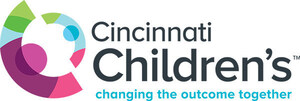
Experts at Cincinnati Children's Give Parents Tips on How to Tell the Difference
CINCINNATI, Oct. 5, 2012 /PRNewswire-USNewswire/ -- One of the problems that parents may have during the fall is deciphering whether their children's sneezing is due to a cold or allergies.
(Logo: http://photos.prnewswire.com/prnh/20110406/MM79025LOGO )
"Runny, stuffy or itchy noses, sneezing, coughing, fatigue, and headaches can all be symptoms of both allergies and colds but when parents pay close attention to minor details they will be able to tell the difference," says Michelle Lierl, M.D., a pediatric allergist at Cincinnati Children's Hospital Medical Center.
"Children who have springtime or fall allergies have much more itching of their noses; they often have fits of sneezing and usually rub their noses in an upward motion. They also complain about an itchy, scratchy throat or itchy eyes, whereas with a cold, they don't," she said.
Dr. Lierl also said that nasal discharge for allergy patients is usually clear and has the consistency of watery mucus, while patients who have colds usually have yellowish mucus discharge.
Dr. Lierl said that there is a blood test called the Immunocap, or RAST, that can screen for allergy to specific foods or airborne allergens. RAST can be ordered by any doctor, but it is important that patients or their parents talk with their doctors first. Children experiencing seasonal allergy symptoms should be tested for environmental allergens present during that season and not for food allergies or allergens present during seasons when they had no symptoms. The results of the RAST test are back after three to five days, whereas allergists can do allergy skin testing in one day in the doctor's office.
If parents discover that their children have allergies, Dr. Lierl suggests the following tips to combat symptoms:
- Windows should be kept closed during periods of very high pollen and fungal spore levels.
- Change air conditioner filters every month.
- Change children's clothing when they come inside from the outdoors. Clothes should also be washed thoroughly to rid them of all of the outdoor pollutants.
- Children should wash their face, hands and hair after being outside.
- Flush the child's eyes and nose with a non-prescription saline solution when the child has been outside to remove the pollen and fungal spores.
- Minimize early morning outdoor activity since pollen counts are higher in the morning.
- Keep vehicle windows closed while traveling with an allergic child in the car to keep allergens out.
- Most important, make sure children take their allergy medicine daily during the pollen season.
For more information about fall allergies, please search the American Academy of Allergy, Asthma and Immunology's web site at www.aaaai.org.
About Cincinnati Children's
Cincinnati Children's Hospital Medical Center ranks third in the nation in U.S.News and World Report's 2012 Best Children's Hospitals ranking. It is ranked #1 for neonatology and in the top 10 for all pediatric specialties. Cincinnati Children's is one of the top two recipients of pediatric research grants from the National Institutes of Health. It is internationally recognized for improving child health and transforming delivery of care through fully integrated, globally recognized research, education and innovation. Additional information can be found at www.cincinnatichildrens.org.
SOURCE Cincinnati Children's Hospital Medical Center







Share this article